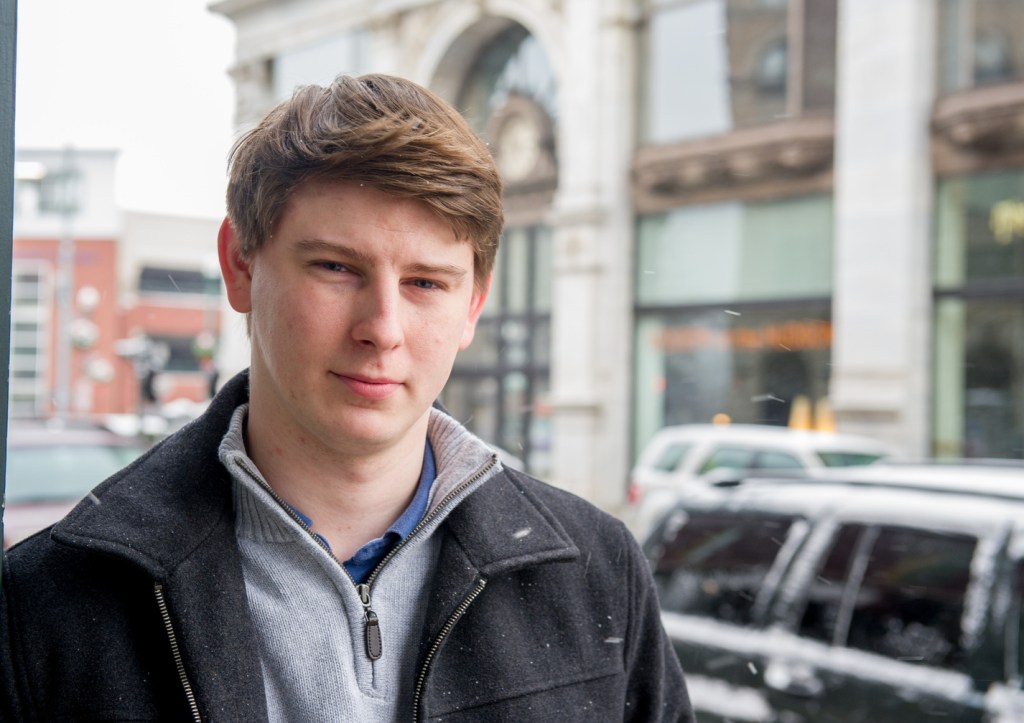WASHINGTON — You can take our word for it. Americans don’t trust each other anymore.
We’re not talking about the loss of faith in big institutions such as the government, the church or Wall Street, which fluctuates with events. For four decades, a gut-level ingredient of democracy – trust in the other fellow – has been quietly draining away.
These days, only one-third of Americans say most people can be trusted. Half felt that way in 1972, when the General Social Survey first asked the question.
Forty years later, a record high of nearly two-thirds say “you can’t be too careful” in dealing with people.
An AP-GfK poll conducted last month found that Americans are suspicious of each other in everyday encounters. Less than one-third expressed a lot of trust in clerks who swipe their credit cards, drivers on the road, or people they meet when traveling.
“I’m leery of everybody,” said Bart Murawski, 27, of Albany, N.Y. “Caution is always a factor.”
Does it matter that Americans are suspicious of one another? Yes, say worried political and social scientists.
What’s known as “social trust” brings good things.
A society where it’s easier to compromise or make a deal. Where people are willing to work with those who are different from them for the common good. Where trust appears to promote economic growth.
Distrust, on the other hand, seems to encourage corruption. At the least, it diverts energy to counting change, drawing up 100-page legal contracts and building gated communities.
Even the rancor and gridlock in politics might stem from the effects of an increasingly distrustful citizenry, said April K. Clark, a Purdue University political scientist and public opinion researcher.
“It’s like the rules of the game,” Clark said. “When trust is low, the way we react and behave with each other becomes less civil.”
There’s no easy fix. In fact, some studies suggest it’s too late for most Americans alive today to become more trusting. That research says the basis for a person’s lifetime trust levels is set by his or her mid-20s and unlikely to change, other than in some unifying crucible such as a world war.
People do get a little more trusting as they age. But beginning with the baby boomers, each generation has started off adulthood less trusting than those who came before them.
The best hope for creating a more trusting nation may be figuring out how to inspire today’s youth, perhaps united by their high-tech gadgets, to trust the way previous generations did in simpler times.
There are still trusters around to set an example.
Pennsylvania farmer Dennis Hess is one. He runs an unattended farm stand on the honor system.
Customers select their produce, tally their bills and drop the money into a slot, making change from an unlocked cashbox. Both regulars and tourists en route to nearby Lititz, Pa., stop for asparagus in spring, corn in summer and, as the weather turns cold, long-neck pumpkins for Thanksgiving pies.
“When people from New York or New Jersey come up,” said Hess, 60, “they are amazed that this kind of thing is done anymore.”
Hess has updated the old ways with technology. He added a video camera a few years back, to help catch people who drive off without paying or raid the cashbox. But he says there isn’t enough theft to undermine his trust in human nature.
“I’ll say 99 and a half percent of the people are honest,” said Hess, who’s operated the produce stand for two decades.
The best-known analysis comes from “Bowling Alone” author Robert Putnam’s nearly two decades of studying the United States’ declining “social capital,” including trust.
Putnam says Americans have abandoned their bowling leagues and Elks lodges to stay home and watch TV. Less socializing and fewer community meetings make people less trustful than the “long civic generation” that came of age during the Depression and World War II.
University of Maryland Professor Eric Uslaner, who studies politics and trust, puts the blame elsewhere: economic inequality.
Trust has declined as the gap between the nation’s rich and poor gapes ever wider, Uslaner says, and more and more Americans feel shut out. They’ve lost their sense of a shared fate. Tellingly, trust rises with wealth.
“People who believe the world is a good place and it’s going to get better and you can help make it better, they will be trusting,” Uslaner said. “If you believe it’s dark and driven by outside forces you can’t control, you will be a mistruster.”
African-Americans consistently have expressed far less faith in “most people” than the white majority does. Racism, discrimination and a high rate of poverty destroy trust.
Copy the Story Link
Send questions/comments to the editors.



Success. Please wait for the page to reload. If the page does not reload within 5 seconds, please refresh the page.
Enter your email and password to access comments.
Hi, to comment on stories you must . This profile is in addition to your subscription and website login.
Already have a commenting profile? .
Invalid username/password.
Please check your email to confirm and complete your registration.
Only subscribers are eligible to post comments. Please subscribe or login first for digital access. Here’s why.
Use the form below to reset your password. When you've submitted your account email, we will send an email with a reset code.